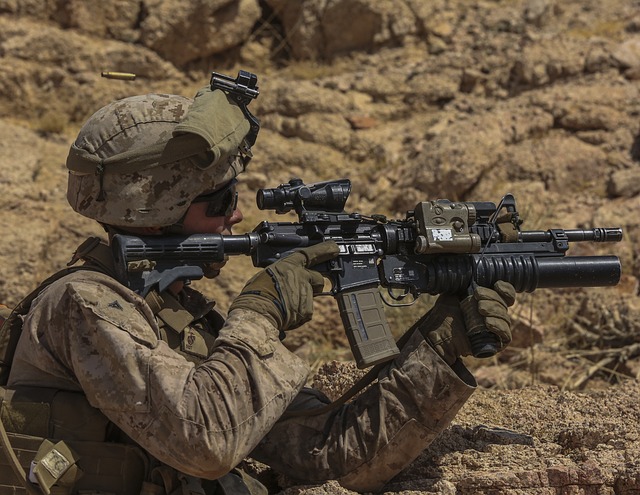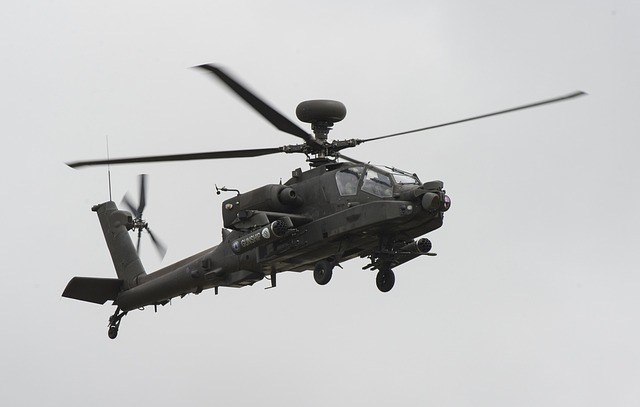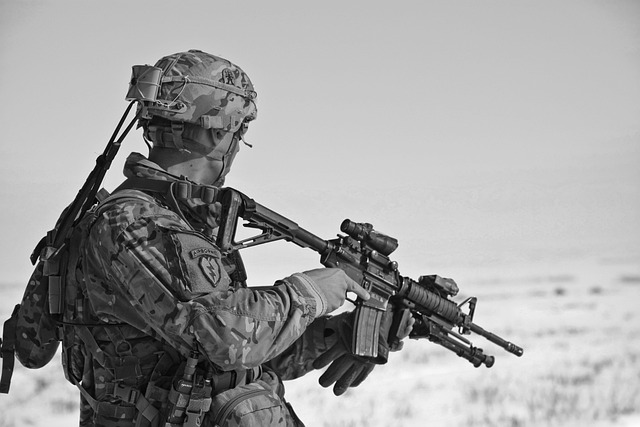The US Army Special Forces (Green Berets), established in 1952, are a vital unit contributing significantly to global national security strategies with missions in unconventional warfare, counter-terrorism, and special operations support. They undergo rigorous training to adapt to diverse environments, partner with local forces, and acquire skills like surveillance and cultural awareness. Their specialized equipment and demanding training make them an invaluable component in modern military operations, from counterinsurgency to humanitarian missions, renowned for their versatility and precision in hostile environments.
“Unleashing elite operations capabilities, the US Army Special Forces stand as a cornerstone of America’s national security. This article delves into their intricate role within the Pentagon and other government agencies, exploring historical origins and modern applications. From counterterrorism to special operations, we analyze the evolution, unique training, and significant impact of these forces. Discover how the Special Forces’ expertise shapes contemporary government strategies, highlighting their indispensable contribution to global security.”
- US Army Special Forces: Background and Role in National Security
- The Evolution of Special Operations: A Historical Perspective
- Equipment and Training: What Makes Them Stand Out?
- The Impact of Special Forces on Modern Government Operations
US Army Special Forces: Background and Role in National Security

The US Army Special Forces, commonly known as the Green Berets, are a unique and highly specialized component of the United States military. Established in 1952, this elite unit has played a pivotal role in shaping national security strategies across the globe. Their primary mission is to conduct unconventional warfare, counter-terrorism operations, and provide special operations support to the US government. Special Forces operators are renowned for their extensive training, adapting to diverse environments, and partnering with local forces to achieve objectives.
With their roots in Cold War-era counterinsurgency campaigns, the Special Forces have evolved to meet modern-day challenges. They are equipped with advanced skills in surveillance, reconnaissance, language acquisition, and cultural awareness, enabling them to operate effectively behind enemy lines or in hostile environments where conventional forces may struggle. The US Army Special Forces’ ability to blend into local populations, gain their trust, and conduct highly mobile operations makes them an invaluable asset in the arsenal of national security strategies.
The Evolution of Special Operations: A Historical Perspective

The evolution of special operations in the US military has been a dynamic journey, shaped by historical events and technological advancements. At its core, this transformation is deeply intertwined with the rise of the US Army Special Forces—also known as the Green Berets—who were initially deployed to conduct unconventional warfare during the Cold War era. Their role was to operate behind enemy lines, providing direct action capabilities and training local allies in counterinsurgency tactics.
Over time, special operations have expanded beyond their initial scope. Modern-day special operation forces, including units like the Navy SEALs and Delta Force, now possess advanced skills in urban warfare, hostage rescue, and counterterrorism. The integration of technology has played a significant role in this evolution, enhancing surveillance, communication, and precision strike capabilities. This historical perspective highlights how special operations have adapted to meet the ever-changing global security landscape.
Equipment and Training: What Makes Them Stand Out?

The US Army Special Forces, often referred to as the Green Berets, are renowned for their exceptional equipment and rigorous training regimens that set them apart from other branches of the military. Their specialized gear is tailored to meet the unique demands of unconventional warfare and special operations, ensuring they’re prepared for any challenge. From advanced communication devices allowing real-time tactical coordination to state-of-the-art survival kits designed for extreme environments, every piece of equipment is carefully selected and extensively tested.
The training process itself is a testament to their dedication. The Special Forces candidate program, known as the Q Course, pushes individuals to their physical and mental limits through an intense 10-week curriculum covering everything from hand-to-hand combat to language acquisition and survival skills. This relentless preparation ensures that only the most adept and versatile soldiers are selected for these elite units, further contributing to their reputation as the world’s premier special operations force.
The Impact of Special Forces on Modern Government Operations

The US Army Special Forces, commonly known as the Green Berets, have played a pivotal role in shaping modern government operations and military strategies. Their unique capabilities and specialized training make them invaluable assets in various missions worldwide. These forces excel in unconventional warfare, counterterrorism, and special operations, offering expertise that conventional units may lack. By integrating stealth, cultural understanding, and adaptability, Special Forces operatives can operate in hostile or sensitive environments, gathering crucial intelligence, neutralizing threats, and completing objectives with precision.
Their impact is profound in today’s globalized world, where security challenges often require sophisticated and discreet solutions. The Pentagon and other government agencies rely on the Special Forces for their ability to navigate complex political landscapes, engage local populations, and conduct operations in remote or urban settings alike. This versatility has made them indispensable in counterinsurgency campaigns, humanitarian missions, and special intelligence gathering, ensuring the US remains a formidable force on the world stage.
The US Army Special Forces, with their unique capabilities and extensive training, have become an indispensable component of national security. Their historical involvement in special operations has significantly shaped modern government tactics, proving that their specialized skills remain relevant and crucial in today’s complex global landscape. The evolution of these forces reflects a need for adaptability, innovation, and precision in addressing emerging threats. As the demand for special operations continues to grow, the US Army Special Forces stand ready to navigate the world’s most challenging environments, ensuring peace and stability.
